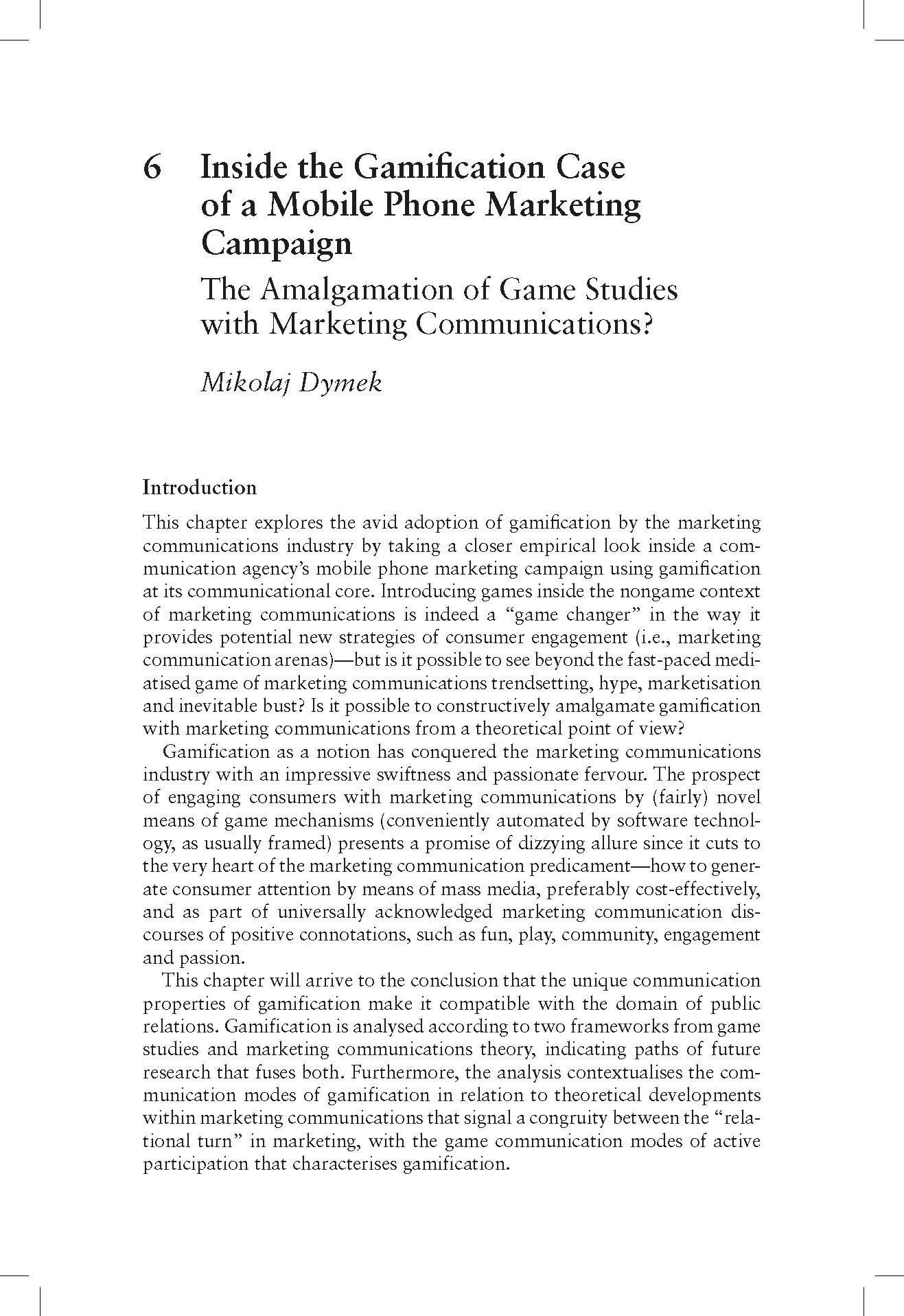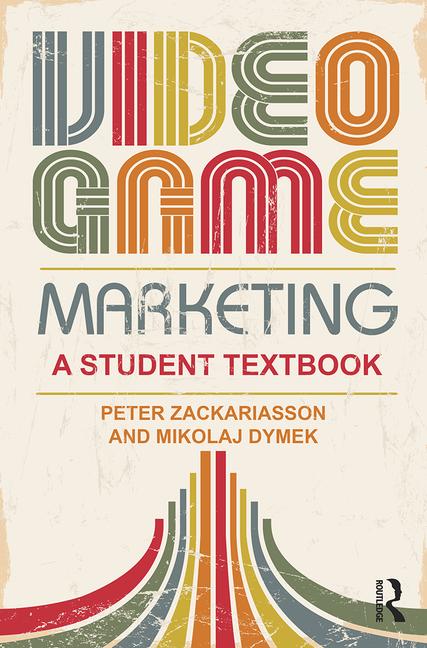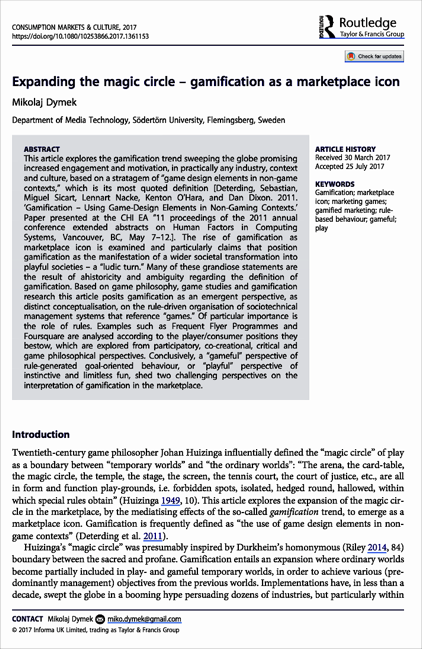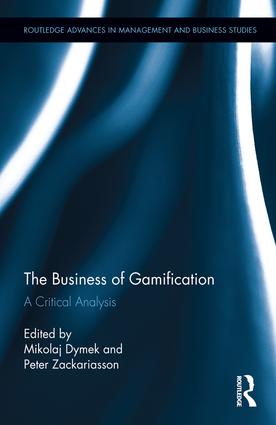Gamifying the perfect employee – A zombie in the organisation?
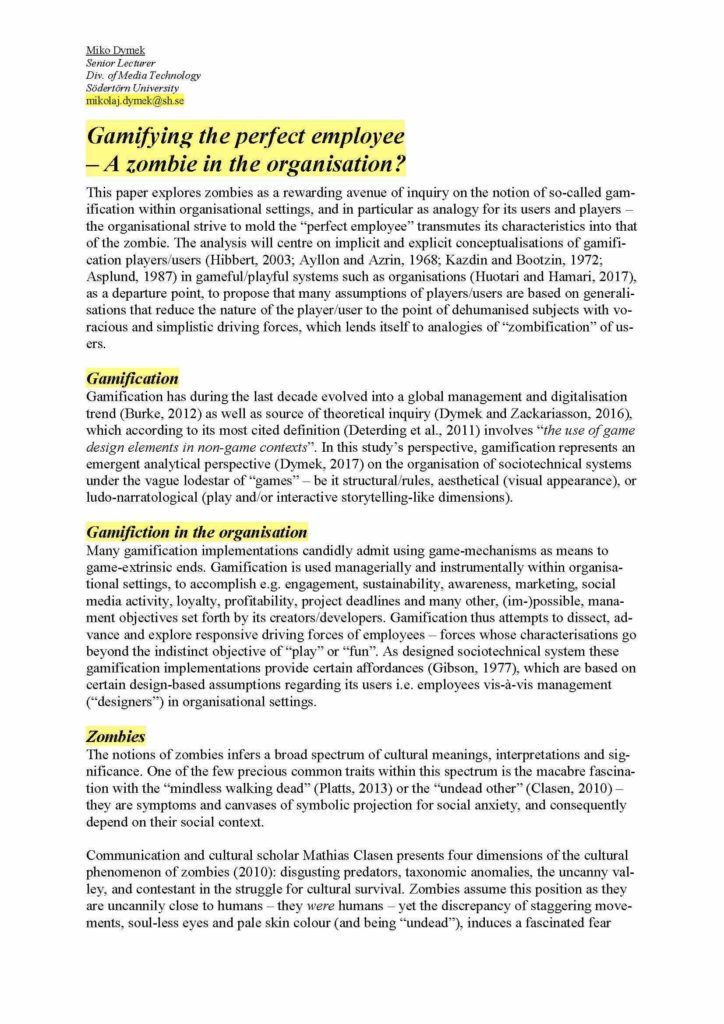
The paper “Gamifying the perfect employee – A zombie in the organisation?”
by Mikolaj Dymek was presented at the 36th Standing Conference on Organizational Symbolism and the 7th Australasian Caucus of the Standing Conference on Organizational Symbolism conference, August 17-20 2018, Meiji University, Tokyo, Japan
This paper explores zombies as a rewarding avenue of inquiry on the notion of so-called gamification within organisational settings, and in particular as analogy for its users and players – the organisational strive to mold the “perfect employee” transmutes its characteristics into that of the zombie. The analysis centres on implicit and explicit conceptualisations of gamification players/users (Hibbert, 2003; Ayllon and Azrin, 1968; Kazdin and Bootzin, 1972; Asplund, 1987) in gameful/playful systems such as organisations (Huotari and Hamari, 2017), as a departure point, to propose that many assumptions of players/users are based on generalisations that reduce the nature of the player/user to the point of dehumanised subjects with voracious and simplistic driving forces, which lends itself to analogies of “zombification” of users.

